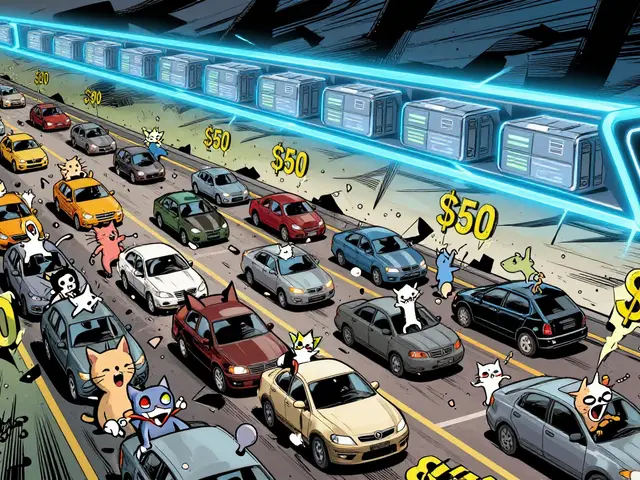CryptoMarket Security: Protecting Your Trades and Tokens
When working with CryptoMarket security, the set of practices, tools, and regulations that keep crypto trading, token swaps, and market data safe from hacks, scams, and legal trouble. Also known as crypto market safety, it is the backbone of any trustworthy crypto activity. CryptoMarket security isn’t a single product; it’s a collection of safeguards that span exchanges, wallets, airdrops, and compliance frameworks.
Key Areas of CryptoMarket Security
The first pillar is crypto exchanges, platforms where users buy, sell, or swap digital assets. Exchanges differ by custody model, fee structure, and regulatory status. Centralized services like Binance offer deep liquidity but hold user funds, requiring strong internal controls. Decentralized exchanges (DEXes) such as PancakeSwap operate on smart contracts, shifting risk to code audits. CryptoMarket security encompasses exchange safety because a compromised exchange can bleed users dry in minutes.
Next comes airdrop security, the measures that protect users from fake token drops and phishing scams. Airdrops attract attention, but malicious actors often clone claim pages to steal private keys. Verifying official channels, using hardware wallets, and checking contract addresses are essential steps. Airdrop security is a subset of CryptoMarket security that guards against social engineering attacks.
Compliance with local and international laws forms the third layer, referred to as regulation compliance, adherence to rules governing anti‑money‑laundering (AML), know‑your‑customer (KYC), and licensing requirements. Regions like the UAE and the EU have introduced crypto licensing regimes that force exchanges and service providers to implement robust customer checks. Regulation compliance influences CryptoMarket security by raising the cost of illicit activity and improving user trust.
Advanced protection comes from blockchain AML, analytics tools that trace transactions, flag suspicious patterns, and support investigators. Platforms using AI‑driven analytics can spot wash‑trading or funneling of illicit funds in real time. Integrating these tools into exchanges and DeFi protocols enhances CryptoMarket security by providing a proactive defense line.
Finally, the underlying consensus mechanism matters. Proof‑of‑Work (PoW) blockchains consume massive energy and present a larger attack surface, while Proof‑of‑Stake (PoS) networks reduce energy use and often embed slashing penalties that deter bad actors. Proof‑of‑Work environmental concerns affect CryptoMarket security decisions for investors who weigh sustainability against decentralization.
All these pieces—exchange safeguards, airdrop verification, regulatory adherence, AML analytics, and consensus choices—interlock to form a resilient security framework. Below you’ll find a hand‑picked selection of articles that dive deeper into each area, from exchange reviews to AML technology updates and airdrop claim guides. Armed with this overview, you can navigate the crypto market with confidence and spot the red flags before they become costly mistakes.







